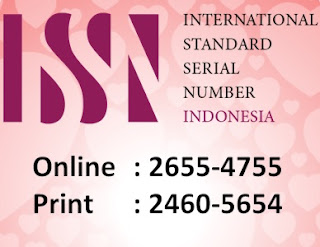REKONSILIASI PERGERAKAN MAHASISWA ISLAM (PMII) MENJADI BADAN OTONOM NAHDLATUL ULAMA (NU)
(KOMUNIKASI ORGANISASI DALAM PENYELESAIAN KONFLIK)
DOI:
https://doi.org/10.32678/lbrmasy.v9i2.10147Keywords:
Organizational Communication, Islamic Communication, Nahdlatul Ulama, Islamic mass organizations, PMII.Abstract
In 1972 the Islamic Student Movement of Indonesia (PMII) decided to dissociate itself and declared out of the autonomous body Nahdlatul Ulama (NU). The conflict got worse when in the 2015 NU Congress in Jombang declared withdrawal of PMII back into autonomous body of NU or in this research called reconciliation. But the decision has not received legal reciprocity from the PMII. This study aims to analyze internal organizational communications conducted by the NU's Executive Board against PMII so that the PMII is structurally a truly part of the NU. The paradigm used in this research is constructivism with case study research method. Data collection is done through two ways: interview and documentation. From the results of research and discussion, it can be concluded that the reconciliation made by PBNU to bring PMII back into autonomous body of NU has not yet been successful. Internal communication by PBNU and PMII in this case is vertical communication - tends to be downward communication (from superiors to subordinates), which gives little room towards PMII. Furthermore, the dissemination of information / messages is done by a sequential method of 'who speaks to whom' pattern through people who have a central position. This method utilizes the leadership of each level of the PMII organizational structure to convey messages conveyed by PBNU to each member of the structure below.
Downloads
References
Gunawan, Imam. (2016). Metode Penelitian Kualitatif: Teori dan Parktik. PT Bumi Aksara. Jakarta.
Pace, R Wayne dan Don F Faules. 2013. Komunikasi Organisasi: Strategi Meningkatkan Kinerja Perusahaan. PT Remaja Rosdakarya. Bandung.
Romli, Khomsahrial. 2014. Komunikasi Organisasi Lengkap. PT Grasindo. Jakarta.
Ruliana, Poppy. 2014. Komunikasi Organisasi: Teori dan Studi Kasus. PT Rajagrafindo Persada. Depok.
W Littlejohn, Stephen dan Karen A. Foss. 2011. Teori Komunikasi, Edisi 9. Salemba Humanika. Jakarta.
Yin, Robert K. 2005. Studi Kasus Desain dan Metode. PT Raja Grafindo. Jakarta.
Zainal Abidin, Yusuf. 2015. Manajemen Komunikasi: Filosofi, Konsep dan Aplikasi. CV Pustaka Setia. Bandung.
Jurnal:
Anwar, Choerul. 2015. Manajemen Konflik untuk Menciptakan Komunikasi yang Efektif (Studi Kasus Di Departemen Purchasing PT. Sumi Rubber Indonesia). Jurnal Interaksi. Vol 4. No 2. Hlm, 148-157.
Anom, Erman. 2004. Komunikasi dalam Negosiasi Bisnis. Jurnal Komunikologi. Vol 1 No 2. Hlm. 76-79.
Hayati, Naila. 2015. Pemilihan Metode yang Tepat dalam Penelitian (Metode Kuantitatif dan Metode Kualitatif). Jurnal Tarbiyah Al-Awlad. Vol IV. Edisi I. Hlm 345-357.
Hamdan, Yusuf, dkk. 2015. Kemampuan Negosiasi Pengusaha dalam Meningkatan Kesepakatan Bisnis. Mimbar. Vol 31. No 1. Hlm 21-30.
Margono, Hartono. 2011. KH. Hasyim Asy’ari dan Nahdlatul Ulama: Perkembangan Awal dan Kontemporer. Media Akademika, Vol. 26, No. 3.
Mulhimah. 2014. Manajemen Konflik dalam Organisasi (Konsep, Fenomena dan Cara Mengelola Konflik di Lembaga Pendidikan). Jurnal Studi Agama dan Masyarakat. Vol 8. No 1. Hlm 21-37.
Raharjo, Sandy Nur Ikfal. 2014. Analisis Dan Upaya Penyelesaian Konflik Antara Warga Perbatasan Timor Tengah Utara, Indonesia dengan Warga Distrik Oecussi, Timor Leste Pada 2012-2013. Jurnal Pertahanan. Vol 4.
Setiawan, Zudi. 2010. Pemikiran dan Kebijakan Nahdlatul Ulama dalam Menjaga Kedaulatan Wilayah Negara Kesatuan Republik Indonesia pada Era Reformasi (1998-2009). SPEKTRUM: Jurnal Ilmu Politik Hubungan Internasional. Vol. 7, No 1.
Soerono, Andreas Christiawan. 2013. Komunikasi Organisasi Bamag Kabupaten X dalam Menangani Konflik Internal. Jurnal E-Komunikasi. Vol I. No 3.
Zumaeroh. 2010. Mengenal Konflik dalam Organisasi. Majalah Ilmiah Ekonomika. Vol 13. No 4. Hlm 130-162.
Downloads
Published
Issue
Section
License
Copyright (c) 2024 Lembaran Masyarakat: Jurnal Pengembangan Masyarakat Islam

This work is licensed under a Creative Commons Attribution-NonCommercial 4.0 International License.









.png)
.png)
.png)

.png)











